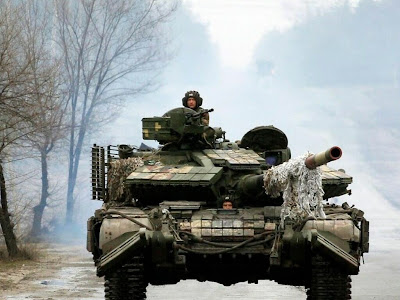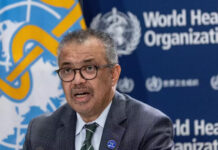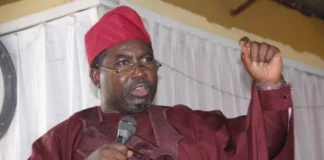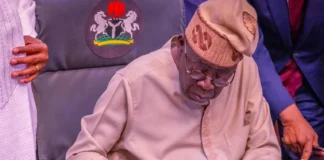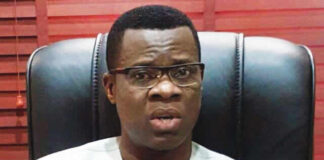By Reuters
Having launched the biggest assault on a European state since World War Two, President Vladimir Putin put Russia’s nuclear deterrent on high alert
KYIV/MOSCOW, Feb 28 (Reuters) – Russian invasion forces seized two small cities in southeastern Ukraine and the area around a nuclear power plant, the Interfax news agency reported on Monday, but ran into stiff resistance elsewhere as Moscow’s diplomatic and economic isolation deepened.
Having launched the biggest assault on a European state since World War Two, President Vladimir Putin put Russia’s nuclear deterrent on high alert on Sunday in the face of a barrage of Western-led reprisals for his war on Ukraine.
Blasts were heard before dawn on Monday in the capital of Kyiv and in the major city of Kharkiv, Ukrainian authorities said. But, Russian ground forces’ attempts to capture major urban centres had been repelled, they added.
Russia’s defence ministry, however, said its forces had taken over the towns of Berdyansk and Enerhodar in Ukraine’s southeastern Zaporizhzhya region as well as the area around the Zaporizhzhya nuclear power plant, Interfax reported. The plant’s operations continued normally, it said.
Ukraine denied that the nuclear plant had fallen into Russian hands, according to the news agency.
As Western governments mustered more support for sanctions against Moscow, diplomatic manoeuvring continued with the Vatican joining efforts to end the conflict by offering to “facilitate dialogue” between Russia and Ukraine.
Ukraine said negotiations with Moscow without preconditions would be held at the Belarusian-Ukrainian border. Russian news agency Tass cited an unidentified source as saying the talks would start on Monday morning.
U.S. President Joe Biden will host a call with allies and partners on Monday to coordinate a united response, the White House said.
The United States said Putin was escalating the war with “dangerous rhetoric” about Russia’s nuclear posture, amid signs Russian forces were preparing to besiege major cities in the democratic country of about 44 million people.
British defence minister Ben Wallace said that he does not expect Russian President Vladimir Putin to use nuclear weapons.
As missiles rained down, nearly 400,000 civilians, mainly women and children, have fled into neighbouring countries, a U.N. relief agency said.
A senior U.S. defence official said Russia had fired more than 350 missiles at Ukrainian targets since it launched the invasion last week, some hitting civilian infrastructure.
“It appears that they are adopting a siege mentality, which any student of military tactics and strategy will tell you, when you adopt siege tactics, it increases the likelihood of collateral damage,” the official said, speaking on condition of anonymity.
Ukrainian President Volodymyr Zelenskiy told British Prime Minister Boris Johnson by telephone on Sunday that the next 24 hours would be crucial for Ukraine, a Downing Street spokesperson said.
So far, the Russian offensive cannot claim any major victories. Russia has not taken any Ukrainian city, does not control Ukraine’s airspace, and its troops remained roughly 30 km (19 miles) from Kyiv’s city centre for a second day, the official said.
Russia calls its actions in Ukraine a “special operation” that it says is not designed to occupy territory but to destroy its southern neighbour’s military capabilities and capture what it regards as dangerous nationalists.
UNPRECEDENTED SANCTIONS
Western-led political, strategic, economic and corporate sanctions were unprecedented in their extent and coordination, and there were further pledges of military support for Ukraine’s badly outgunned armed forces.
The rouble plunged nearly 30% to an all-time low versus the dollar, after Western nations on Saturday unveiled harsh sanctions including blocking some Russian banks from the SWIFT international payments system.
China’s foreign ministry voiced disapproval of the use of sanctions, saying it opposed unilateral, illegal action. Regarding Putin’s order to put its nuclear deterrent on high alert, it said that all sides should remain calm and avoid escalation.
Japan and South Korea said they would join in the action to block some banks from SWIFT. South Korea, a major exporter of semiconductors, said it would also ban exports of strategic items to Russia.

